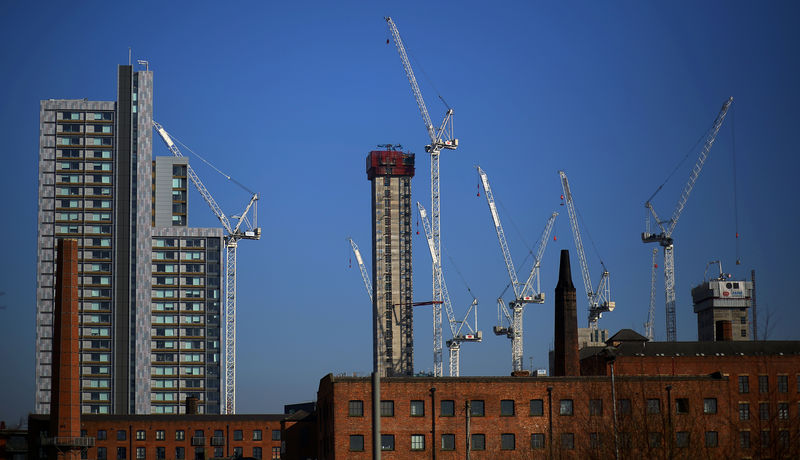LONDON (Reuters) - Activity in Britain's construction industry shrank for a third month in a row in July as Brexit worries hit building projects, amid concerns that the slowdown
could soon spill over into other areas of the economy, a survey showed on Friday.
The IHS Markit/CIPS construction Purchasing Managers' Index (PMI) rose to 45.3, a less severe contraction than June's 43.1 -which was the weakest reading in more than 10 years - but still well below the 50 level at which growth begins.
Economists polled by Reuters had expected the index to recover more strongly to 46.0.
A sharp drop in new orders - down for four months in a row - meant a quick turnaround was unlikely and confidence in the sector was the lowest since November 2012, IHS Markit said.
"Construction companies have started to respond to lower workloads by cutting back on input buying, staffing numbers and sub-contractor usage," Tim Moore, economics associate director at IHS Markit, said.
"If the current speed of construction sector retrenchment is sustained, it will soon ripple through the supply chain, and spillovers to other parts of the UK economy will quickly become apparent."
Bank of England Governor Mark Carney said on Thursday that "profound uncertainties" about Brexit and the rise of protectionism in the global economy were weighing on Britain.
IHS Markit said commercial work was hardest hit in July while civil engineering and housebuilding also shrank.
Construction accounts for 6% of Britain's economy, which has relied heavily on spending by consumers to offset a fall in business investment during the Brexit crisis.
On Thursday, a PMI for the manufacturing sector - which represents 10% of Britain's economy - held at a six-and-a-half-year low in July and output fell by the most in seven years.

A PMI for Britain's dominant services sector is due to be published on Monday.